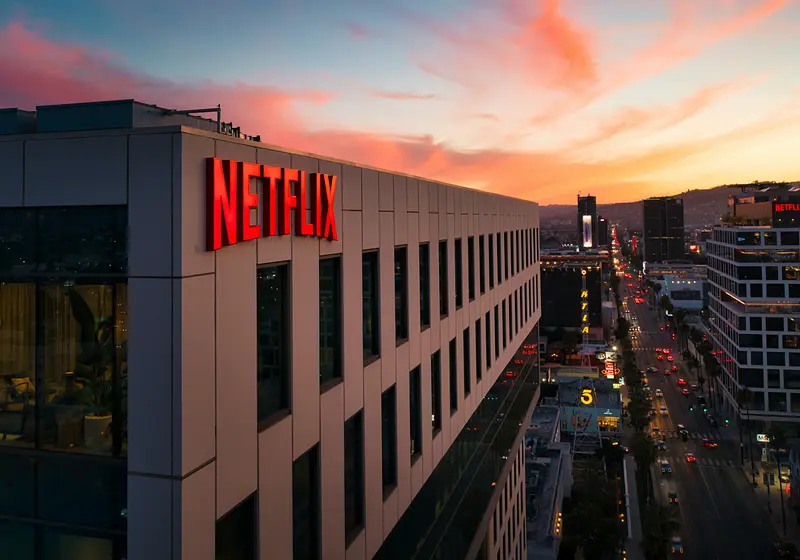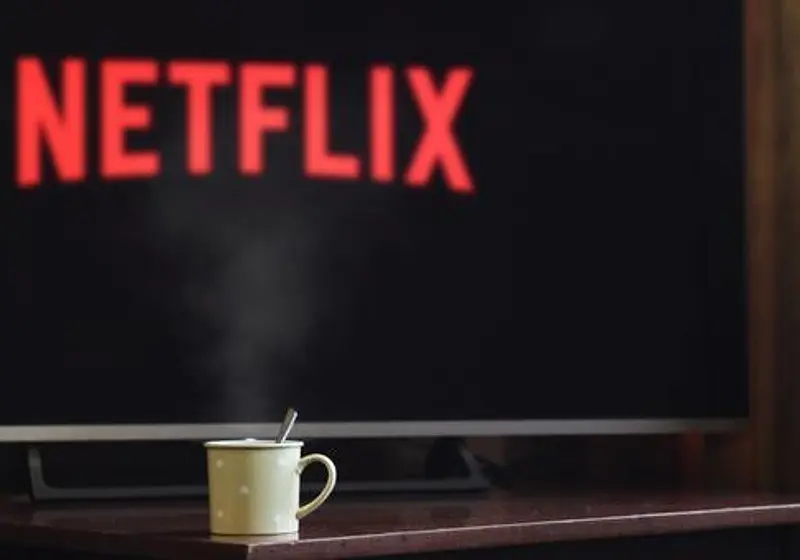"Is Netflix Dying?”
The three-word search yielded over 80 million results, most of which replied with what seems to be the commonly understood, yet often understated answer: “Yes.” What began as a rejection of a $40 Blockbuster late fee turned into a $45 billion company famous for its accessibility to the most popular TV shows and movies in the world.
Netflix first launched in 1998 as a DVD rental and sales company. A strong competitor to the DVD rental companies Redbox and Blockbuster, Netflix founders Marc Randolph and Reed Hastings were approached by Amazon CEO Jeff Bezos. Bezos offered Randolph and Hastings $15 million to acquire the new company, but in fear that they would be underpaid, the men refused the offer.
At the time, Netflix was a rental company that would deliver DVDs via mail-in and had a catalog of only 925 titles. In 2007, the company finally released what would become its most modern form of delivery: its streaming media service. This introduced the concept of “video on demand”, an idea that was labeled foreign or unusual. In 2022, however, it is impossible not to hear of or watch a Netflix show on its media streaming platform.
Netflix has since produced over 1,500 original shows and has a total of 17,000 titles globally available for watching. These include shows like Fuller House, Orange is the New Black, Marvel’s Daredevil, and Stranger Things. These same shows have turned young actors into A-listers and film hopefuls into movie stars.
So, to many, the discussion of the end of an era or the death of a major media staple is one that comes as a surprise. How could a company so powerful and influential take a fall after years of prosperity and acclaim?
Streaming Wars
The term “Streaming Wars” was coined to describe the fierce competition between an endless number of streaming services. To name a few, sites like Disney+, CNN+, Hulu, HBO Max, Netflix, YouTube TV, and Apple TV are fighting to claim the title of Supreme Streamer. And, while they all claim distinctive qualities and shows that make them different from their peers, all the “Max-es”, “Plus-es”, and “TV-es” seem to have similar products in the form of melodramatic workplace television shows, rom-com movies, and high-priced membership plans.
The problem with this abundance of options is that there is a scarcity of interest. Why pay $10 to $20 for a membership you will likely forget about when you can watch cable, which has the option of live shows, and go out to the theater to see the newest movies as they come out? And in the midst of this cesspool of disrupted supply chains and quickly cancelled TV shows, there is Netflix. No matter how much Netflix claims individuality and supremacy over its competitors, there is one thing it has in common with its rivals: it’s struggling.
2020s
The 2020s, thus far, have been marked by many positive things, like progress in management of the pandemic crisis and the new Minions movie. However, it will also be infamously marked by astronomically high gas prices, an unforgiving pandemic, and an economic situation reminiscent of the 2008 recession. The pandemic provided a unique, positive spin for Netflix in that many people were at home and bored and decided to pick up Netflix subscriptions for the first time.
These unforeseen circumstances, along with the closing of movie theaters, led to Netflix shares being sold for $332 a piece in March of 2020. In 2021, Netflix’s subscriber count grew to an outstanding 222 million. In 2022, though, it seems like the pandemic and its media gains never even occurred.
On March 14, 2022, it was reported that Netflix shares were down by more than 50%. It especially doesn’t help that COVID restrictions are down and theaters are once again opening to blockbuster films such as the new Elvis biopic, Top Gun: Maverick, and Jordan Peele’s upcoming thriller Nope.
Cancellations
Like a college basketball “one and done”, Netflix has become the poster child for the “2 seasons, then cancelled” phenomenon. Famous for its ability to produce an abundance of quality original shows, it comes as a shock to many that they would be willing to throw these money-makers to the wayside in favor of newer, less popular shows.
Premature cancellations have also angered fans of Netflix, as shows like House of Cards and Marvel’s Luke Cage were called off after receiving widespread critical and commercial acclaim. Often, when these abrupt cancellations are announced, Netflix releases a statement blaming the removal on “creative differences” and other predictable excuses.
If you go on any social media platform, be it Twitter, Facebook, Instagram, or TikTok, you are sure to find fans of the shows dismayed at Netflix’s decisions to cancel them so suddenly.
This is a prime example of the emotional relationships fans form with the characters of these shows. With their wholehearted support comes an expectation of consistency in distribution and releases; and, by removing these shows, you are shredding the connection between the public and the companies they fund, in turn leading to a decrease in membership sales and viewership.
Adaptation
The sole reason Netflix was able to surpass and supersede all other media distribution platforms is the same reason for its demise. Simply put, Netflix was able to adapt. Adaptation is more than just a term used to describe the biological transfer of energy and the primitive lust for survival.
Adaptation describes the small changes that impact a brand's durability. Adaptation is seen far past Wall Street, though.
It is seen in the physical changes and sonic changes of pop stars like Ariana Grande and Beyonce. These “eras” or album release periods are examples of adaptations to sell the brand that they embody.
As years go by and people age, their interests change, and so must the companies they support. Instead of a new haircut or an aesthetic change, Netflix vanquishes these identity crises by adding new shows, providing new membership plans, etc. But in a time where immediate gratification is favored over long, anticipation-inducing rollouts, the controversial comedy specials and quality over quantity mindset Netflix boasts do not allow them to connect with viewers, let alone hold their interest for years to come.
Reality
The reality is, Netflix is a victim of its own productivity, of its own success, and of its money-focused business model. The main questions a profitable business hoping to attain longevity should ask are, “What do I want to be known for?”, “What makes me different from others?”, and “What resources can I provide that define positive growth for my company?”. These questions should be posed instead of the questions it seems Netflix is asking itself, such as “How much money can I make?” and “How much is too much?”. By introducing money as the prime factor of motivation, one is removing the moral ideals of providing the best quality for customers and creating a dynasty instead of a fad.
Please don’t misunderstand these statistics, though. It is highly unlikely that the downfall of Netflix will come as swiftly as many are hoping. At the moment, stocks falling and memberships declining are a gradual hemorrhaging of being an avaricious company at the wrong time and the wrong place.
It would likely take decades for Netflix to fall into the trenches where companies like Quibi and Blockbuster lie. However, it must regain the personal connections it once flaunted proudly and understand the competitively lucrative business that is media distribution in order to maintain relevance and continuity for years to come.

















